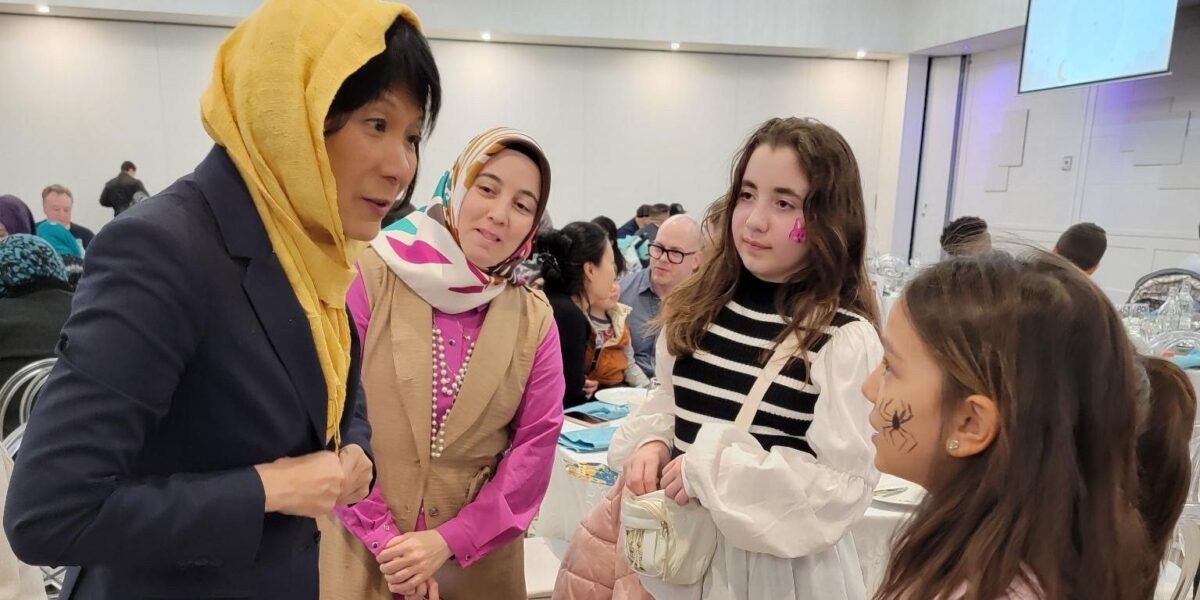As Ramadan this year draws to a close, Muslim communities across Canada are hurting.
Yet, instead of using their power and leverage to address the source of the pain of their fellow Muslim citizens, Canadian politicians and law enforcement rely on empty iftars and Ramadan greetings to obscure the damaging impacts of their actions on Muslim communities. But their grotesque performance isn’t fooling anyone.
In the Islamic tradition, Muslims are encouraged to stand against injustice wherever it is and whoever is committing it. So when Muslim communities anywhere in the world suffer from injustice, Canadian Muslims suffer too.
In the past, when members of Muslim communities attended iftars hosted by leaders, it was with the expectation this would lead to dialogue and improved decision-making in the halls of power. Among the 9/11 generation, there was hope that similar acts of civic engagement could address the longstanding marginalization experienced by these communities. However it’s becoming increasingly apparent this approach doesn’t work.
During this holy month of Ramadan, politicians and state institutions that oppress Muslims are opportunistically exploiting the fact that some vulnerable Muslims remain willing to engage with them, hoping their voices and concerns will be heard.
Last week, Toronto Mayor Olivia Chow, clad in a headscarf, hosted an iftar at City Hall. When confronted by activists who organized a mass walkout due to her role in branding Palestinians and Muslims as terrorists, expanding the Toronto Police budget, and supporting the overpolicing of pro-Palestinian protestors, she denied the attack on Gaza could be called a genocide, and claimed, Toronto “rejects hate”.
The Toronto Police Service (TPS), which has been selectively shutting down sidewalk protests organized by Palestinian Muslim community members and Canadians at large, similarly hosted and participated in iftars last week, amidst criticism and protest from Muslim community members.
These acts of breaking bread with Muslims did nothing to temper TPS brutality against predominantly Palestinian, Muslim, and racialized protestors over the weekend.
This opportunism and theatrical performance among Canadian politicians and their police counterparts is not new to Muslim communities. In 2004, Giuliano Zaccardelli, a former Commissioner of the RCMP spoke at one the largest Islamic gatherings in Canada and told the crowd that “discrimination against Muslims will not be tolerated”. It was the same Zaccardelli that was found complicit in rendering Maher Arar, a Canadian Muslim citizen and three other Canadian Muslim men to be tortured and imprisoned in Syria. Zaccardelli would resign a few years later after misleading testimony over the Maher Arar case.
It’s important to remember Islamophobia in this country is intricately tied to Canadian foreign policy and political rhetoric. Policymakers generated support for killing Muslims abroad during the “War on Terror” by stoking Islamophobia. Locally, this resulted in state surveillance and criminalization of Muslim communities, who were presented as an internal threat.
Today, we see a continuation of these Islamophobic policies. The Canadian government actively participates in killing Palestinians by failing to impose an arms embargo on Israel (a state that has so far murdered over 30,000 civilians), aiding airstrikes against Yemen to protect shipping routes used to supply these weapons, and refusing to condemn Israeli violations of international law.
We also observe the Canadian law enforcement apparatus, and its targeting of Canadian Muslim and Palestinian communities through claims of “radicalization”, remains intact.
In the face of this state sponsored violence, Prime Minister Justin Trudeau, who has the power to change Canadian foreign and national security policy, makes empty statements about support for Muslim communities, and standing against Islamophobia.
This depoliticized understanding of Islamophobia, devoid of any government accountability regarding its foreign policy and domestic anti-terrorism legislation, is not what Canadian Muslims need.
Today it is time to take seriously—and take action on— feedback which Canadian Muslim communities have provided over the years, and especially in the last six months, about ending Canadian complicity in wars against innocent Palestinian civilians and countless other Muslim majority nations.
We must also take action on decades of Muslim advocacy and research to address the state-sponsored, Canadian brand of Islamophobia, which hides behind the promise of diversity and inclusion, but is nonetheless incredibly harmful.



